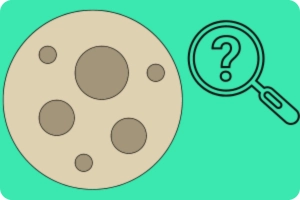Yes, Vitamin C does reduce pigmentation.
There are two types of pigmentation, hyperpigmentation and hypopigmentation. Hyperpigmentation occurs when a portion of the skin is darker than the rest, while hypopigmentation occurs when a portion is paler.
Vitamin C can help reduce both types of pigmentation.
How Vitamin C reduces hyperpigmentation
It fights hyperpigmentation in 2 ways: by inhibiting tyrosinase and by being an effective antioxidant.
Hyperpigmentation is caused when melanin deposits itself in various parts of the face due to an overproduction of melanin.
Vitamin C reduces the over-production of melanin. By doing this, it reduces hyperpigmentation.
I will now explain how it reduces melanin in 2 different ways…
By inhibiting tyrosinase:
Tyrosinase, an enzyme in the skin, helps produce the pigment melanin.
Melanin gives skin its colour and protects it from environmental irritants. But sometimes, especially in darker-skin-toned people, an excess amount of melanin is produced.
This excess melanin results in hyperpigmentation, when a portion of the skin is darker than the rest.
Vitamin C interferes with the activity of tyrosinase. Tyrosinase needs copper to perform its function. Vitamin C deactivates copper, inhibiting the activity of tyrosinase.
If tyrosinase doesn’t work well, the amount of melanin produced reduces.
By being an effective antioxidant:
Skin’s exposure to the Sun’s UV rays and environmental irritants leads to the formation of free radicals on the skin. Free radicals are harmful. They damage good cells.
Free radicals also increase inflammation, leading to an over-production of melanin. Whenever there is inflammation, the skin responds by producing more melanin.
And often, especially in darker-skin-toned people, this melanin is just excess. The excess melanin serves no purpose other than to cause hyperpigmentation.
Vitamin C is a powerful antioxidant. It neutralises free radicals, which removes the inflammation caused by these nasty free radicals. Once the inflammation goes, the overproduction of melanin stops.
It is important to note that hyperpigmentation is extremely difficult to fix once it occurs. Hence, prevention is the best cure for hyperpigmentation. So, regularly using ingredients like Vitamin C helps.
How Vitamin C reduces hypopigmentation
Hypopigmentation occurs when melanin production in a portion of the skin reduces or stops. This would happen if the melanocyte cells, which produce melanin, are damaged around that portion of the skin.
Melanocyte cells can be damaged by the sun’s UV rays and inflammation from other causes, such as acne or other minor trauma in that section.
Since Vitamin C is a powerful antioxidant, if applied early before the hypopigmentation occurs, it can neutralise the nasty free radicals and thus eliminate the inflammation these nasty beings cause.
As long as there is inflammation, the disruption it can cause to melanocyte cells exists.
Once inflammation stops/reduces, disruption stops/reduces.
It is important to note that hypopigmentation cannot be fixed once it occurs. Hence, prevention is the best cure for hypopigmentation. So, regularly using ingredients like Vitamin C helps.
Is Vitamin C the only product we need to fix pigmentation?
No. It is essential to understand that this is a hard NO.
Hyperpigmentation is caused by two main factors: the Sun’s UV rays and inflammation from acne or other minor skin trauma.
There are other causes for hyperpigmentation, such as hereditary factors and certain medical conditions. These reasons are beyond the scope of this website.
But don’t despair! The sun’s UV rays and inflammation from acne and other minor trauma are the leading causes of pigmentation in most of us.
The most crucial mandatory product we need to prevent pigmentation is sunscreen.
Sunscreen. Use sunscreen daily. Even if you are indoors, sunscreen is a must because the sun’s UV rays can travel through glass. Reapply sunscreen regularly.
Sunscreen is mandatory!! Did I already say that? I probably did. But there is no harm in repeating it a third time; sunscreen is compulsory!
In addition to sunscreen, it is a good practice to include anti-inflammatory ingredients and tyrosinase inhibitors in our skincare regime to prevent pigmentation. These two sets of ingredients can also help in reducing hyperpigmentation once it appears, to some extent.
Vitamin C falls under both sets of ingredients. It can reduce inflammation as a good antioxidant and reduce excess melanin deposits as a suitable tyrosinase inhibitor.
Vitamin C and its derivatives
The pure form of vitamin C is called l-ascorbic acid. Formulating this form of Vitamin C in skincare products is complicated, as it is highly unstable. The formulation can be expensive. Therefore, many manufacturers use derivatives of Vitamin C.
It is important to remember that not all derivatives offer the same benefits of Vitamin C. Very few provide the same, and some offer some of the benefits of vitamin C.
Here is a list of derivatives:
3-O-ethyl-l-ascorbic acid offers almost the same benefits as vitamin C.

